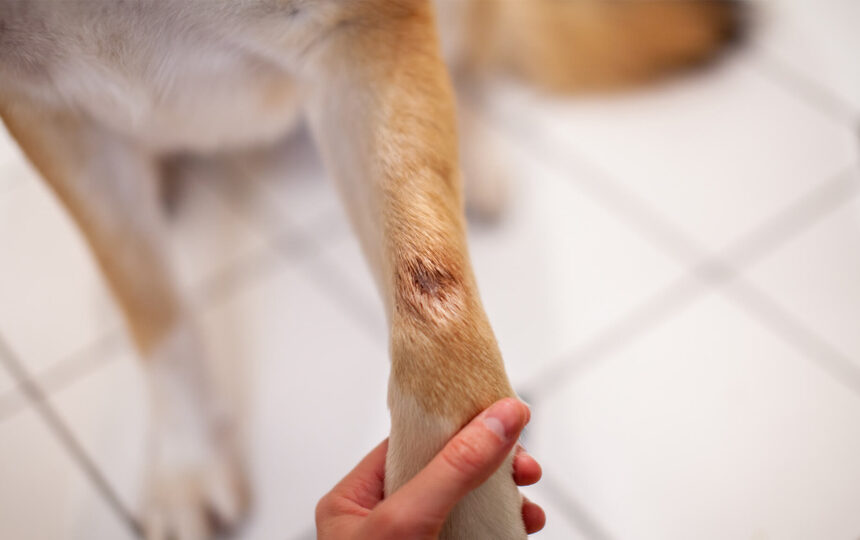When it comes to treating wounds on our canine companions, nature often holds the most effective remedies. One such natural wonder is Manuka honey, hailed as a miracle solution for healing dog wounds. This unique type of honey, originating from New Zealand, has gained recognition for its superior medicinal properties, especially when compared to regular honey. In this blog, we’ll explore why Manuka honey stands out, how to choose the best quality, application methods, and other antibacterial solutions you can find in your pantry.
Why Manuka Honey is Superior
Manuka honey is derived from the nectar of the Manuka bush native to New Zealand. It contains a higher concentration of methylglyoxal (MGO), the compound primarily responsible for its antibacterial properties, compared to regular honey. This makes it extremely effective in wound healing, fighting infection, and reducing inflammation. It also maintains a moist wound environment and provides a protective barrier against new infections.
Choosing the Best Manuka Honey
When selecting Manuka honey for medicinal use, consider the following:
UMF Rating: Look for a Unique Manuka Factor (UMF) rating, which measures the antibacterial strength. A UMF rating of 10+ is considered effective for therapeutic use.
MGO Content: Higher levels of MGO indicate stronger antibacterial properties. Aim for at least 100+ MGO for wound care.
Certification: Ensure it’s certified as genuine Manuka honey from New Zealand.
Raw and Unprocessed: Choose honey that is raw and unprocessed to ensure all its medicinal properties are intact.
Deep Dive into the Healing Benefits of Manuka Honey for Dogs
The use of Manuka honey as a wound treatment for dogs isn’t just a traditional remedy; it’s backed by science. The unique properties of Manuka honey make it exceptionally suitable for wound care, and understanding these can help dog owners utilize this natural remedy more effectively.
Antibacterial Properties
Manuka honey’s high sugar content creates a low water activity environment, which is hostile to bacterial growth. Additionally, the presence of hydrogen peroxide, a natural antiseptic found in many types of honey, and the unique MGO in Manuka honey, offer strong antibacterial properties.
Anti-Inflammatory and Healing Effects
Manuka honey can reduce inflammation and soothe the skin, which is especially beneficial for dogs with sensitive or irritated skin. Its osmotic effect also promotes healing by drawing out fluids and toxins from the wound, facilitating the body’s natural healing process.
Promoting Healthy Tissue Regeneration
Manuka honey has been shown to promote the regeneration of new, healthy tissue, reducing the likelihood of scarring. It also maintains a moist wound environment, which is known to facilitate faster healing.
Reducing Odor and Cleaning Wounds
Wounds, especially those that are infected, can produce unpleasant odors. Manuka honey helps to eliminate these odors and keeps the wound clean.
How to Safely Use Manuka Honey for Your Dog’s Wounds
Safety Precautions
While Manuka honey is generally safe, it’s important to use it correctly:
Allergy Test: Before applying Manuka honey, test a small amount on your dog’s skin to check for allergic reactions.
Avoid Using on Deep or Severe Wounds: Consult a vet before using Manuka honey on serious or deep wounds.
Step-by-Step Application
- Clean the Area: Gently clean the wound with saline solution or mild antiseptic.
- Apply Manuka Honey: Dab a layer of Manuka honey on the wound.
- Bandaging: If possible, cover with a sterile bandage. This prevents your dog from licking the honey and keeps the wound clean.
- Monitor the Wound: Keep an eye on the healing process and any signs of infection.
- Regular Application: Apply Manuka honey once or twice daily, depending on the wound’s severity.
Additional Natural Remedies for Wound Care
While Manuka honey is highly effective, other natural remedies can also aid in wound care for dogs. Here are a few additional options:
1. Calendula
Calendula has natural antiseptic properties, making it great for healing cuts and abrasions. Use calendula ointment or diluted calendula tea for wound cleaning.
2. Echinacea
Known for its immune-boosting properties, Echinacea can be applied topically as a tincture to help fight infection in wounds.
3. Tea Tree Oil
While it should be used with caution and in diluted form, tea tree oil can be effective against bacteria and fungi. Never use it near your dog’s face or on large areas of skin.
4. Lavender Oil
Lavender oil is known for its soothing properties and can help reduce pain and inflammation when applied to minor wounds.
5. Witch Hazel
Witch hazel is a natural astringent and can be used to clean wounds. It’s particularly effective for hot spots or irritated skin.
The Role of Diet in Skin and Wound Healing for Dogs
Beyond topical treatments, a dog’s diet plays a crucial role in skin health and wound healing. Nutrient-rich diets support the body’s natural healing processes. Foods high in protein, essential fatty acids (like omega-3 and omega-6), vitamins A, C, and E, and minerals such as zinc contribute significantly to skin regeneration and immune function. Incorporating foods like lean meats, fish, sweet potatoes, and leafy greens can enhance your dog’s ability to recover from wounds. Additionally, ensuring adequate hydration is essential for maintaining skin elasticity and promoting overall health. Always tailor dietary changes to your dog’s specific needs and consult with a veterinarian for guidance, especially when managing health conditions through diet. This holistic approach, combining proper nutrition with effective natural remedies, can significantly aid in your dog’s recovery and overall well-being.
Conclusion
Manuka honey stands out as a potent, natural solution for treating dog wounds, thanks to its enhanced antibacterial and healing properties. When used correctly, it can effectively accelerate the healing process and prevent infections. Alongside Manuka honey, various household items can also serve as emergency remedies for minor wounds. However, it’s crucial to consult with a veterinarian for serious injuries or if there’s no improvement, as professional medical treatment may be required. With these natural solutions, you can be prepared to manage minor wounds and support your dog’s recovery process effectively.






